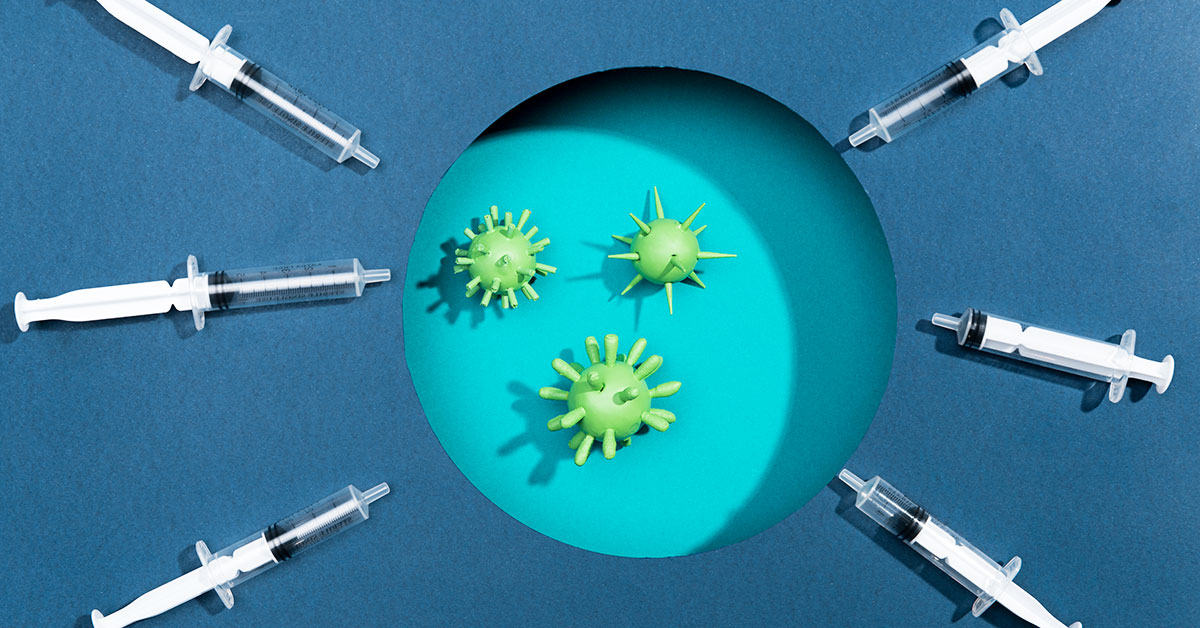What is Immunotherapy?
Immunotherapy is a type of cancer treatment that harnesses an individual’s immune system to fight against cancer. This treatment can boost the way the immune system works to attack cancer cells. It is used to treat numerous types of cancers which can either be used alone or in combination with chemotherapy and other cancer treatments. It has emerged as a promising treatment for many types of cancers and autoimmune diseases.

How does Immunotherapy work against cancer?
The immune system consists of a complex process that detects and destroys cancer cells. As a result, it is most likely to curb many types of cancers. Immune Cells are sometimes found in or around tumour cells which are known as tumor-infiltrating lymphocytes or TILs. These cells are considered to be the sign that an individual’s immune system is responding to the tumor.
What are the different types of immunotherapy?
Immunotherapy treatment encompasses a variety of strategies that are aimed at modulating the immune system of the human body in order to fight disease, particularly autoimmune disorders and cancers.
Monoclonal Antibodies: Antibodies are proteins that fight against infections by attaching to antigens. Monoclonal antibodies are made in the laboratory to boost the body's natural antibodies. Sometimes, they act as antibodies themselves. These antibodies help the body to fight cancer in different ways. One such instance is, that these antibodies are used for blocking the activity of abnormal proteins in cancer cells. Additionally, they can be used to.
Checkpoint Inhibitors: Checkpoint Inhibitors are considered to be a type of immunotherapy that blocks various checkpoint proteins. For instance, pembrolizumab (keytruda) and iplimumab (Yervoy).
Cytokines: Cytokines are small proteins that play a crucial role in controlling inflammation in the body. It allows the immune system to fight against germs and other harmful substances. It impacts the growth of all blood cells and other cells that eventually help the body’s immune and inflammation responses.
CAR T-cell therapy: CAR T-cell therapy is another type of immunotherapy widely known as adoptive cell transfer. It is a complex and specialist treatment. In this treatment, a specialist makes small changes to the T cells through apheresis. Thereafter, a drip is given to back these cells into the backstream. Thus, the CAR-T cells recognize as well as attack the cancer cells.
How is Immunotherapy given?

Immunotherapy can be administered in several ways, largely depending on the specific treatment and the type of cancer being targeted. Following are a few common methods of giving immunotherapy:
Intravenous Infusion: Many immunotherapy drugs are given through IV infusion, where a medication is directly delivered into veins. The goal is to circulate the drug throughout the body and target cancer cells wherever they might be.
Oral Medication: Some immunotherapy drugs also come in pill or capsule form, which patients can take orally. It is believed to be more convenient for patients who do not prefer receiving infusion in clinics.
Intravesical Therapy: It is used for certain types of urinary bladder cancer. In this case, immunotherapy drugs are usually directly delivered into the bladder through a catheter. It helps the medications to come directly in contact with the cancer cells.
Intra-arterial Infusion: In this method, immunotherapy drugs are directly given to the artery that supplies blood to the tumor. It is another targeted approach that maximizes drug concentration at the tumor site. Secondly, it minimizes exposure to healthy tissues.
Intratumoral Injection: In this case, an immunotherapy drug is directly injected into the tumor which is largely used for localized cancers.
Subcutaneous Injection: Certain immunotherapy drugs are injected under the skin, allowing the sustained release of drugs over a period of time.
You may reach out to top cancer faculties in North Bengal for in-depth details of Immunotherapy treatment.
Frequency of Immunotherapy
Certain factors determine how frequently people should receive immunotherapy. Some prominent factors impacting the frequency of immunotherapy are the stage of cancer, the type of cancer, and the patient's response toward immunotherapy drugs. It can be given daily, weekly, or monthly. It is given in cycles so the body has time to rest between the treatments.
In many cases, it is given over a period of weeks or months. Some patients may also receive immunotherapy twice a week while others may receive it less frequently. It largely depends on the individual treatment plan of a patient.
Moreover, some additional immunotherapy drugs are given to patients as maintenance therapy
Ultimately, the frequency depends on how the patient responds to the immunotherapy treatments and the specific treatment characteristics. Reach out to Siliguri’s best cancer hospital for having access to advanced technology and Immunotherapy treatment.
What types of cancers are treated with Immunotherapy?
Immunotherapy treatment is used in various types of cancers. Ongoing research is being continued to explore the potential of immunotherapy in treating additional cancer types. Following are some of the cancers that can effectively be treated with immunotherapy:
- Lung Cancer
- Bladder Cancer
- Kidney Cancer
- Melanoma
- Kidney Cancer
- Hodgkin Lymphoma
- Non-Hodgkin Lymphoma
- Head and Neck Cancer
- Liver Cancer
- Colorectal Cancer
- Merkel Cell Carcinoma
What are the side effects of immunotherapy?
- Fatigue: Feeling tired or lethargic is the most common side effect of immunotherapy. However, in some cases, it can be severe which may cause reactions like dermatitis as well as blistering.
- Skin Reactions: Some of the frequently reported side effects of immunotherapy are skin rashes, itching, and redness.
- Flu-like symptoms: Side effects similar to flu such as fever, chills, headaches, and muscle aches can also be experienced in some individuals.
- Digestive issues: Issues like nausea, constipation, diarrhea, and loss of appetite are some possible side effects of immunotherapy.
- Endocrine disorders: Some Immunotherapy drugs may also affect hormone production which leads to conditions like adrenal insufficiency or hypothyroidism.
- Autoimmune Reactions:The immune system is stimulated to make Immunotherapy work which sometimes results in autoimmune reactions.
- Infusion Reactions: Some immediate reactions may occur including fever, chills, rash as well as difficulty in breathing.
- Increased risk of infections: Immunotherapy may also weaken the ability to fight off infection which eventually increases the risk of viral, bacterial, and fungal infections.

Questions you may ask your care provider before receiving immunotherapy:
It is crucial to be well-informed before starting any treatment. Following are some questions that an individual may consider asking their care provider before immunotherapy:
- Which type of Immunotherapy will I be getting?
- How does this Immunotherapy perform?
- Are there any potential side effects of this immunotherapy?
- How severely can these side effects impact me and my health journey?
- What are the precautions that I can take?
- What is the expected timeline for this immunotherapy treatment?
- Are there any clinical trials or alternate treatments available?





